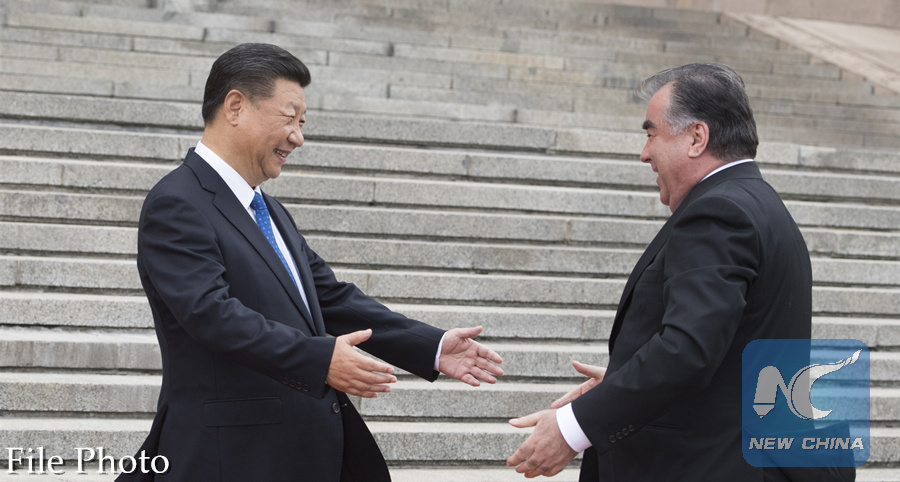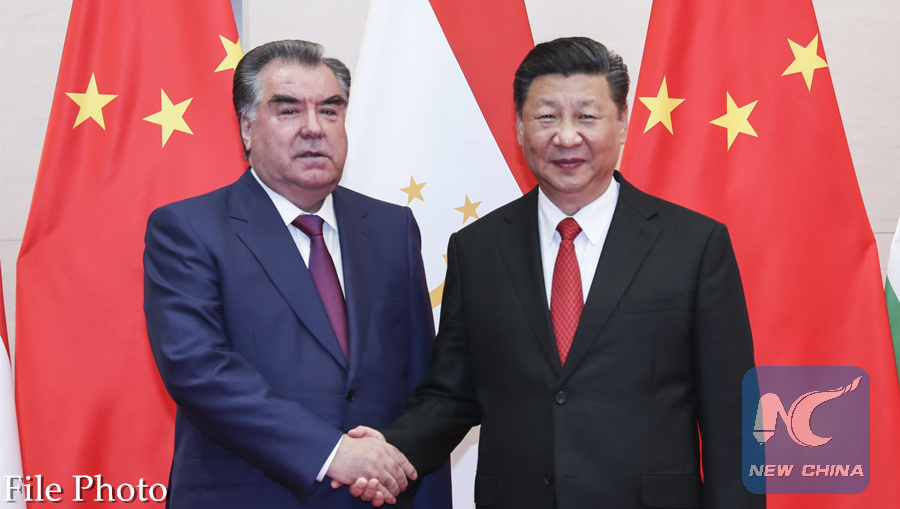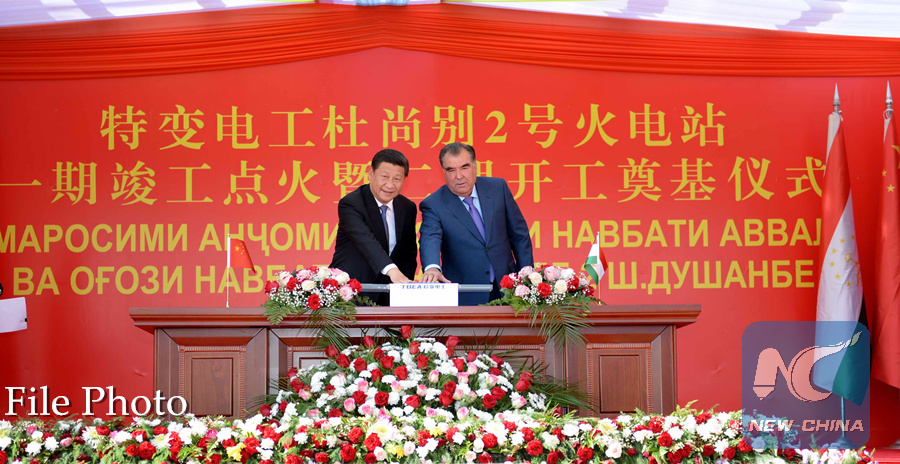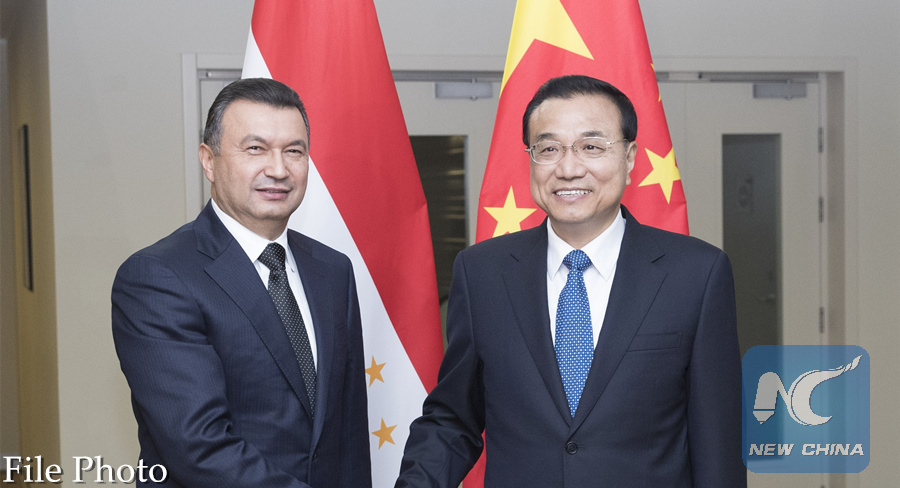
Chinese President Xi Jinping (L) greets President of Tajikistan Emomali Rahmon during a welcome ceremony before their talks in Beijing, capital of China, Aug. 31, 2017. (Xinhua/Li Xueren)
MOSCOW, Oct. 9 (Xinhua) -- Cooperation between China and Tajikistan continues to rapidly develop and score results under the framework of the Belt and Road Initiative, Chinese Ambassador to Tajikistan Yue Bin said.
China and Tajikistan enjoy a high degree of political mutual trust, laying a solid foundation for the expansion of bilateral relations as well as for trade and economic cooperation, Yue said in a recent interview with Xinhua.
"The two countries do not have any historical issues and actual divergences, and they support each other on issues involving their core interests," the ambassador said.

Chinese President Xi Jinping (R) meets with his Tajik counterpart Emomali Rahmon in Qingdao, east China's Shandong Province, June 9, 2018. (Xinhua/Xie Huanchi)
Tajikistan is the first country in the world to have signed a memorandum with China on building the Silk Road Economic Belt, and Dushanbe pledged to strengthen the synergy between its national development strategy that centers around industrial development and the China-proposed initiative.
"With the impetus of the Belt and Road Initiative, pragmatic cooperation between the two countries is developing rapidly," Yue said.
According to the ambassador, China in recent years has been the main investor in Tajikistan's industrial sector, aiding in the country's economic development.
The investment involves many areas in Tajikistan, including the three priority sectors - energy, transportation and agriculture.
Chinese companies have invested in many large industrial enterprises or projects in Tajikistan, including Zhongtai (Dangara) New Silk Road Textile Industry Co., Ltd., the largest exporter in Tajikistan in terms of foreign currency earnings, and the Dushanbe-2 thermal power station, which solved the country's long-existing problem of power shortages in winter.

Chinese President Xi Jinping (L) and Tajik President Emomali Rahmon attend the completion ceremony of first-phase project of the Dushanbe No.2 power plant and the groundbreaking ceremony of second-phase project of the Dushanbe No.2 power plant in Dushanbe, capital of Tajikistan, Sept. 13, 2014.(Xinhua/Ma Zhancheng)
"China has become the largest source of investment in Tajikistan, with a cumulative investment of more than 2 billion U.S. dollars," Yue said.
In particular, he underlined that infrastructure connectivity is an important part of the cooperation between China and Tajikistan within the framework of the Belt and Road.
Supported by the Tajik government, many roads in the country have been built by Chinese enterprises or with loans provided by the Chinese government, boosting connectivity among the country's highways in the north and south, Yue said.
The ambassador also praised the solid friendship between the two peoples, especially a booming "Chinese fever."

Chinese Premier Li Keqiang meets with his Tajik counterpart Qohir Rasulzoda in Sochi, Russia, Nov. 30, 2017. (Xinhua/Wang Ye)
In addition to Confucius Institutes, some universities and secondary schools are also providing Chinese courses, and the number of Tajik students studying in China is continuously growing.
"Many young people see learning Chinese and studying in China as an important life choice... China has become the second largest destination for Tajik students to study abroad after Russia," Yue said.

